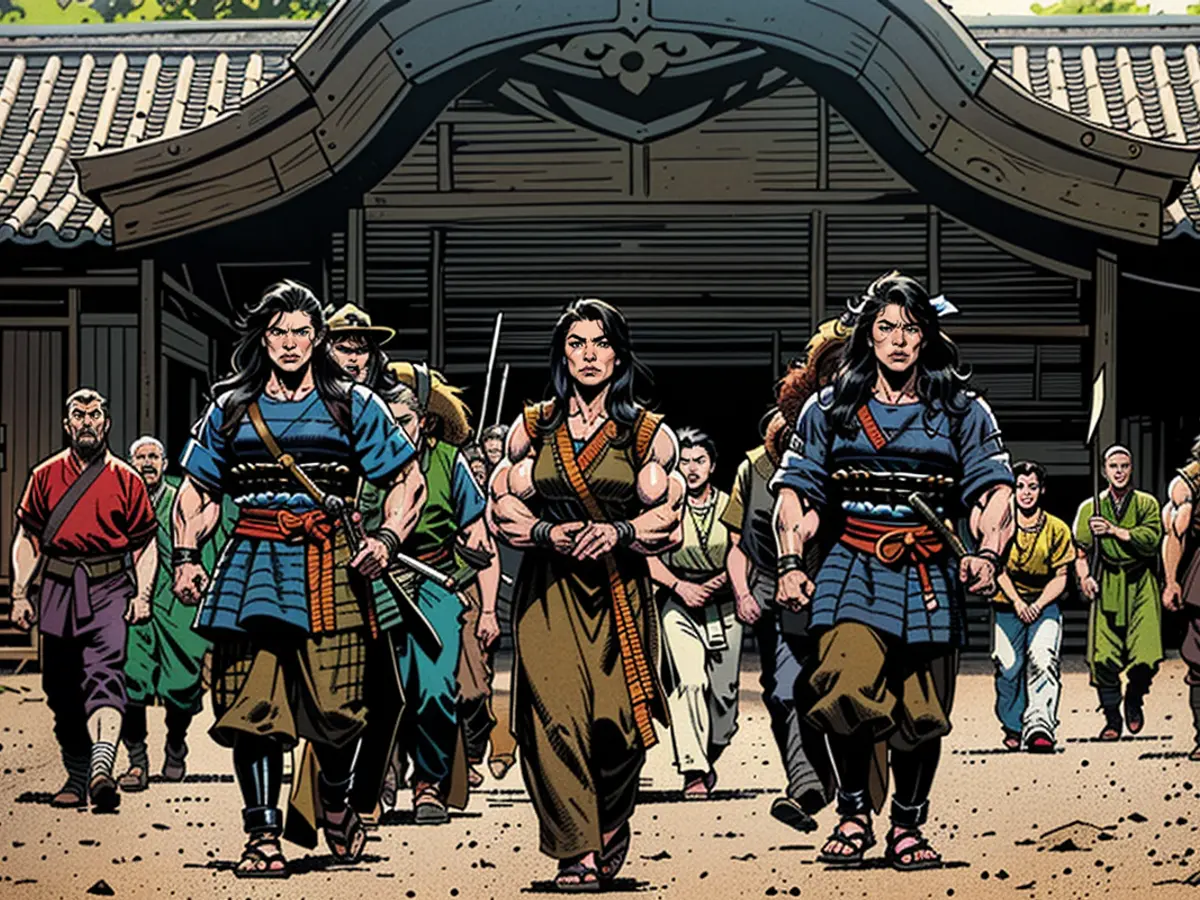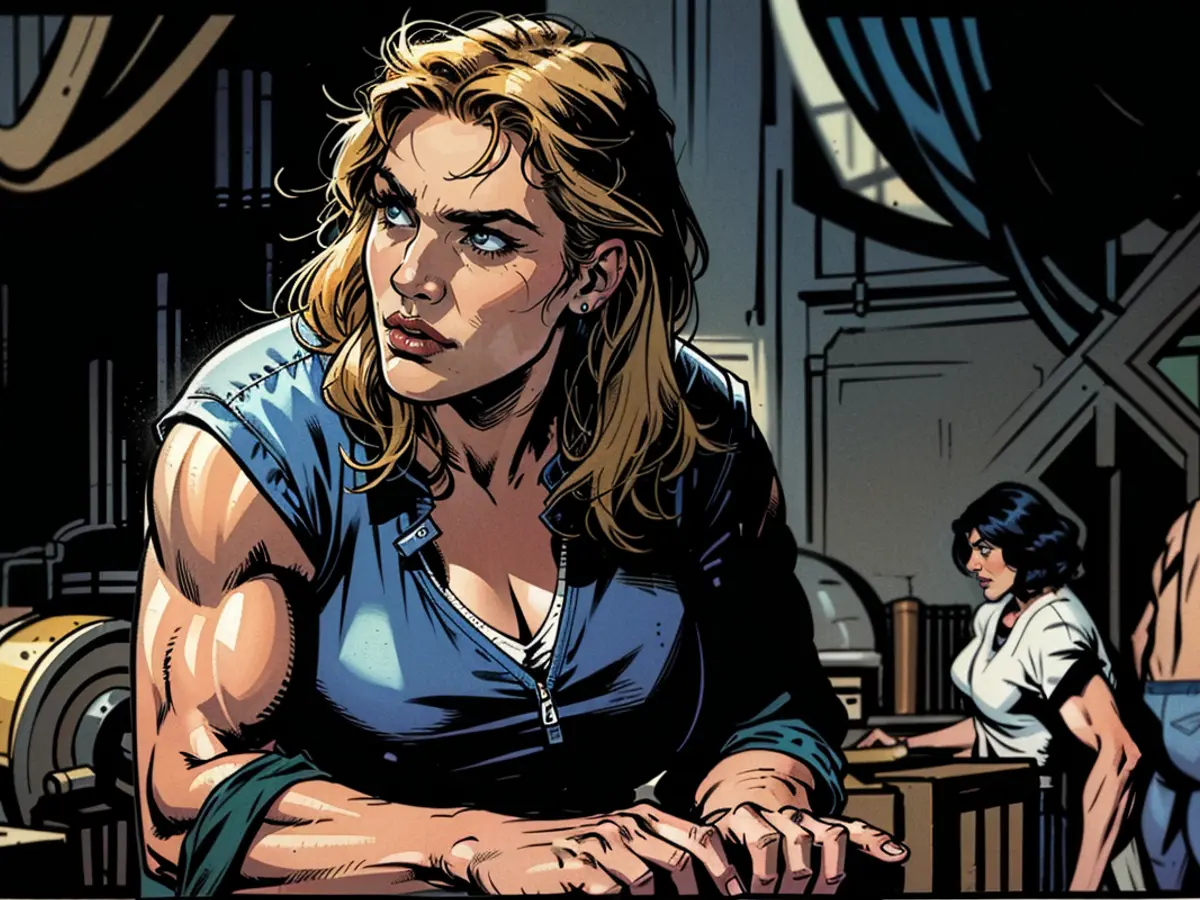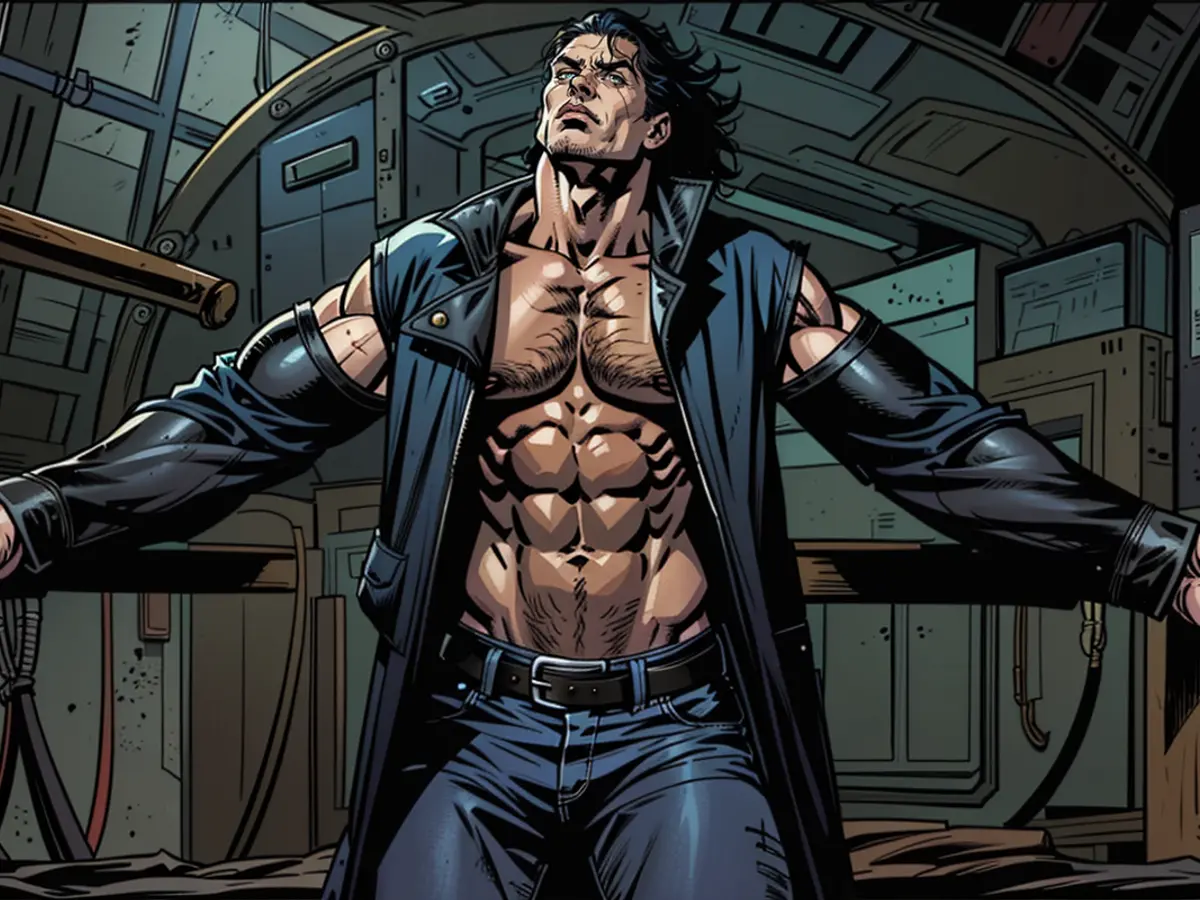20 TV Shows and Movies About Historical Women in Power
It's become a common refrain: Please let me live in precedented times. The roller-coaster ride of the daily news has come to feel like too much, much too fast. Case in point: the weekend's surprise nomination (presumptive) of Kamala Harris for the Democratic party's presidential ticket. It feels like a net gain, no matter where you stand politically: if you were never planning on voting for Joe Biden, I can't imagine you care that much whether he's been swapped out for his VP—and if you were, you now have the chance to help elect a woman president.
We've been here before, of course, but it's roughly time for our supposedly advanced democracy to join other nations in electing a woman to the highest office—like, say, the U.K., Canada, Pakistan, India, Israel, Argentina, the Central African Republic, Portugal, Dominica, Pakistan, Nicaragua, Turkey, Burundi, Rwanda, Sri Lanka, Bangladesh, Ukraine, Malawi, and others.
The relationship between women and power will remain fraught regardless, and for the foreseeable future. Power—whether inferred via inheritance, politics, or by other means—is always a complex matter. That's probably why its consideration has served as fodder for so many interesting movies and TV shows. And in every nation and every generation, women have exercised influence, for good or ill, even when formal titles eluded them. For every Queen Elizabeth I ruling over the British Empire while carefully stage-managing her own sexuality, there's a Hosokawa Gracia, an exemplar of the use of so-called "soft power" to change history.
It’s all led me to wonder if we’re ever been, or ever will be, and good at evaluating our real-life female leaders, who may be judged, lauded, and vilified in unfair ways. But in the modern age, TV shows and movies have, at least, done a decent job of giving us memorable, sometimes provocative considerations of historical women in power.
The Favourite (2018)
The image of power in this Oscar, uh, favorite resides less in Olivia Colman’s portrayal of the hilariously batty Queen Anne, but in that of her court. The scheming, plotting, and seductions that go on between the queen and courtiers Sarah Churchill (Rachel Weisz) and Abigail Masham (Emma Stone) reveal that women can not only wield power as capriciously as men, but that the frequent historical necessity of working behind the scenes has made these particular women masters of a gloriously cutthroat game.
Where to stream:digital rental
Shōgun (2024 – )
This sprawling adaptation of the James Clavell novel centers Toda Mariko (Anna Sawai) between Hiroyuki Sanada's Lord Yoshii Toranaga and Cosmo Jarvis's John Blackthorne, the English navigator whose unplanned arrival upends a budding Japanese civil war. You'd be right to note that none of these characters were actual people, but I'm giving Shōgun a pass in that, while the names have been changed ("Toranaga," for instance, stands in for the real-life Tokugawa Ieyasu), there's a level of historical accuracy on display that rivals productions that didn't change anyone's name.
Mariko is a double for Hosokawa Gracia, a samurai and one of the last surviving members of the powerful Akechi clan, who defied her daimyō to convert to Christianity, thus placing herself at the center of her era's primary religious conflict. At a time and in a place where women had little political power, her status and influence were such that her actions (and death) changed the course of Japanese history, even if she didn't actually wind up in a romantic relationship with the English pilot. It's a good reminder that women have wielded power throughout history, even without grand titles.
Where to stream: Hulu
The Woman King (2022)
A stunningly swole Viola Davis leads a team of all-but-unstoppable African women warriors, the Agojie, as they fight back against colonialist invaders. While Davis' General Nanisca is fictional (though the name comes from a real Agojie warrior), the movie dramatizes the story of the real-life "Dahomey Amazons," the West African country's all-women military class, circa 1823. Watching Nanisca navigating the complicated regional politics is thrilling, as is watching her and her warriors kicking colonialist ass.
Where to stream: Netflix, digital rental
Queen Christina (1933)
There are two modes of female power on display here. There’s Greta Garbo, an enduring cinematic icon who scrupulously avoided the typical movie star schmoozing and promotional tours in favor of showing up, giving deeply memorable performances, and going home to her art collection. There’s also Queen Christina, who Garbo portrays here, the ruler of Sweden for a roughly 20-year period beginning in 1632 and who, like Garbo, enjoys a well-earned reputation for gender ambiguity and queerness, some of which is on display in this pre-code film that sees her entertaining several suitors, both male and female. The film smartly conveys the Swedish people’s response to their ruler: to some, she’s a weak-willed woman; to others, she’s unsuitably domineering. Too horny for some; too frosty to others. Double standards, always.
Where to stream:digital rental
The Girl King (2015)
This 2015 Finnish film offers a slightly more modern take on Sweden’s Queen (more accurately, King, as there really was just no equivalent for "Queen" in the language) Christina, with more of an emphasis on the monarch’s nontraditional relationship with gender roles and sexuality.
Where to stream:Prime Video, Tubi
Atlantic Crossing (2020 miniseries)
It’s sometimes called “soft power,” particularly when wielded by women: the ability to achieve political aims through convincing rather than by coercion. Here it’s the true-ish story of Crown Princess Märtha of Norway (Sofia Helin). Forced to flee the Nazi takeover of her country with her children, she eventually made her way to the United States. Forming an intense friendship (some suggest a bit more) with Franklin Roosevelt (Kyle MacLachlan), Märtha lobbied a divided United States to provide aid and military support to Norway, both behind-the-scenes and publicly, by touring the U.S. as an informal ambassador raising interest in both the anti-Nazi cause and her own country’s interests.
Where to stream: PBS, digital purchase
Marie Antoinette (2006)
Sofia Coppola’s frothy take on the life of the notorious French queen (Kirsten Dunst) finds empathy in the story of one of modern history’s most vilified women, without going so far as to make her heroic. Coppola manages to project the idea of a modern teenager back in time, forcing us to question how prepared anyone could be to leave their family and take over a high profile role in another country at the age of 14—especially when the man with top billing (Jason Schwartzman’s King Louis) is so feckless. Though she was undoubtedly pampered and entitled, it’s hard not to wonder if just maybe history has been a little too quick to pin all the failings of pre-Revolutionary France on a single young woman.
Where to stream:digital rental
Princess Ka’iulani (2009)
I’ll be frank is saying that Princess Ka’iulani isn’t a great film, but it’s an entirely watchable one that speaks to a moment in Hawaiian history that’s not terribly distant, but still little discussed in the continental U.S. Ka’iulani (Q’orianka Kilcher) was the heir to the throne of the Kingdom of Hawaiʻi, but lost any hope at ever claiming it following the arrest of Queen Liliuokalani and the overthrow of the monarchy by a consortium of mostly mainland American businessmen (the islands’ monarchs believed, quite mistakenly, that they could play ball with western interests). The film considers Ka’iulani’s time in exile, seeing her face racism in England before and after the coup; being a crown princess in her own nation does little to spare her from the condescension, or outright hostility, of her hosts. In America, she successfully lobbies for a halt to the annexation of her country before a change of administrations renders some of her work moot.
Where to stream: Tubi, digital rental
Cleopatra (1963)
Our ambivalent response to female power goes back millennia; Cleopatra is the last, rather than the first, female Egyptian ruler who history has looked askance at. Losing her throne, and her life, to one of the more overtly misogynistic ancient civilizations (compared to Egypt, anyway), Romans wrote the story of that country’s last monarch, casting her largely as an unnatural harlot who held to power purely on the basis of her sexual prowess. In reality, the queen was far savvier, even if what seemed like smart strategic alliances at the time didn’t play out as expected. The movie comes much closer to a modern conception of Cleopatra’s power, even if still falling back on plenty of 1960s ideas of her seductive powers.
Where to stream: Max, digital rental
Harriet (2019)
From a woman aided by the Underground Railroad system, Harriet Tubman quickly became one of its most effective conductors, and is now remembered as the most important single name in the entire operation, an unquestioned leader who approached the quest for freedom with a religious zeal (her religious convictions seemed, indeed, to have a lot to do with her fortitude). Later, she lead soldiers in battle during the Civil War before becoming a leader in the suffragist movement. If any American deserves to be considered royalty (or at least get her face on a $20), it’s certainly her.
Where to stream: Netflix, digital rental
The Great (2020 – 2023)
All historical fiction is, ultimately, about the time it’s made in as much as it is about the time it’s set, and that’s very explicitly the case with The Great, a sumptuous take on the rise and reign of Russian Empress Catherine the Great, but one that’s also very much a dark comedy. The arc here, at least in the first season, involves Catherine’s darkly comic miseducation in leadership and power. Though born in Prussia, she slowly comes to love her adopted country so much that she realizes there’s only one thing to do: overthrow and kill her husband Peter (Nicholas Hoult), who is buffoonish and monstrous in equal measure. No “soft power” here.
Where to stream: Hulu
The Spanish Princess (2019 – 2020)
An adaptation of the Phillips Gregory novel, The Spanish Princess (as with its predecessors, The White Queen and The White Princess) is, occasionally, a bit too soapy for its own good. What it does do very effectively, though, is capture the indefatigability of Queen Catherine of Aragon (Charlotte Hope), the first wife of Henry VIII in the days before he set his sights on younger prizes. Due to be cast off after the death of her first arranged marriage in England, Catherine quite simply refuses to leave, recognizing that her only hope for her desired future lies with the new king-to-be, Henry.
Where to stream: Starz
Elizabeth (1998)
Christopher Eccleston's Thomas Howard holds his nose long enough to crown Cate Blanchett’s Queen Elizabeth I, a wildly unlikely heir to the throne of England who became one of that country’s exemplars of monarchy. In many ways, it’s a film about choices: we meet Elizabeth first as a young woman with no expectation of rule, but see that, as she gains power, her options contract rather than expand. Given the enormous pressure to select a husband, and the limitations placed on her choice, she ultimately opts for public celibacy as the “Virgin Queen,” reflecting, in a way, the impossible divide modern women must often navigate between career and family.
Where to stream: Starz, digital rental
Mary Queen of Scots (2018)
History has never been shy about positioning Mary and Elizabeth I as lifelong rivals, reveling in the idea that a powerful female leader requires a female arch-rival. In this case, there’s a bit of truth to the idea, even if it’s vastly overstated for dramatic purposes (the two never even met). Saoirse Ronan plays the title character, who became queen within days of her birth, and whose fate was sealed seemingly from that very moment. Stubborn and determined in ways that would likely have been applauded in a male ruler, Mary is undermined by the men in her life at every single moment, her power being bolstered when useful, and undercut when someone near to her has different ideas.
Where to stream:digital rental
Mrs. Brown (1997)
Queen Victoria (played here by Judi Dench) is known, in many ways, for her relationships: the “Widow of Windsor” spent what was seen as a deeply unseemly amount of time mourning her husband, Prince Albert, before taking on a new nickname, “Mrs. Brown,” for her friendship (or perhaps more) with the thoroughly uncouth, and entirely unacceptable Scottish servant, John Brown (Billy Connolly). Even at this late point in her reign, Victoria’s family and advisers were desperate to reign in what they saw as her impulsive attraction to Brown, but, as was so often the case in Victoria’s life and career, she persevered through sheer stubbornness. She knew her power, and she had no intention of ending a relationship that she enjoyed. You might also find it listed as Her Majesty, Mrs. Brown.
Where to stream: Britbox, digital rental
The Six Wives of Henry VIII (1970 miniseries)
The pacing is undoubtedly very British-television-in-the-1970s, but stick with it for the performances (and the production values). Like six interconnected plays, each episode focuses on a different Tudor queen, each of whom is forced to navigate the era's power politics with only their wits and a shifting, nebulous authority. Six very different women, all fighting for a bit of power and, ultimately, survival in a country lead by an obsessively horny and increasingly paranoid megalomaniac. Who could possibly relate? The follow-up series, Glenda Jackson's Elizabeth R, is better remembered and just as good.
Where to stream: Britbox, digital purchase
Jodhaa Akbar (2008)
The always transcendent Aishwarya Rai plays the title role here, a real-life Mughal princess of the sixteenth century. Arranged in marriage to Akbar, an emperor-to-be trained to be utterly merciless in his rule, Jodhaa steadfastly sets her own terms in her betrothal, standing up to Akbar effortlessly, including by refusing to sleep with him until she knows him well, even after they’ve married. Jodhaa is portrayed as a partner in power, and a moderating influence on a husband who’s been taught his entire life that ruthlessness is the only means of leadership.
Where to stream: Netflix
Wolf Hall (2016 miniseries)
Mark Rylance’s Thomas Cromwell is the main attraction in this BBC adaptation of the Hilary Mantel novels, but not long in the background is Claire Foy’s Anne Boleyn; it’s one of the finest portrayals of the much-maligned queen in TV or cinema, even if her screen time is limited at the outset. Here we see a complex woman with ambition, privileged and with an air of entitlement, who also quickly comes to realize that she’s walking a tightrope. Her power, deriving from a deeply fickle king, has unwritten and ultimately treacherous limitations.
Where to stream: PBS, digital purchase
The Queen (2006)
Is there more power in silence? That seems to have been one of the central questions of Queen Elizabeth II’s reign. Both by constitutional necessity, and her own interpretation of the role of a modern British monarch, she rarely saw fit to express emotions beyond benign amusement or the affection of a slightly austere mother. It worked, largely, until the death of Princess Diana, which crea a crisis point for the queen personally, as well as for the entire monarchy. The Queen’s silence was seen as a slight to the beloved former princess, and the country wasn’t willing to accept that. It’s a take on a phenomenon we see often with female politicians and rulers: too much emotion, and they’re hysterical and not to be trusted. Too little? They’re cold and indifferent.
Where to stream:digital rental
After exploring numerous historical accounts of powerful women, it's clear that their influence extends beyond political titles. Streaming platforms now offer intriguing perspectives on these influential figures, such as:
- 'The Favourite' (2018) on digital rental, showcasing the complex web of power in Queen Anne's court.
- 'Atlantic Crossing' (2020 miniseries) on PBS or digital purchase, depicting the soft power wielded by Crown Princess Martha of Norway during the Second World War.
These movies and TV shows provide entertaining and thought-provoking insights into the nature of power and women's roles in influencing the course of history.







